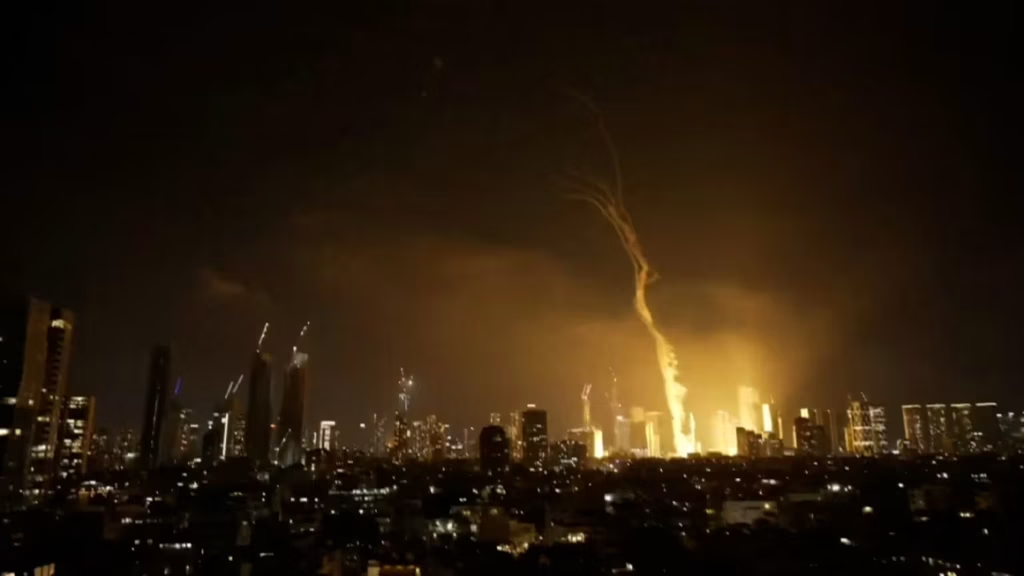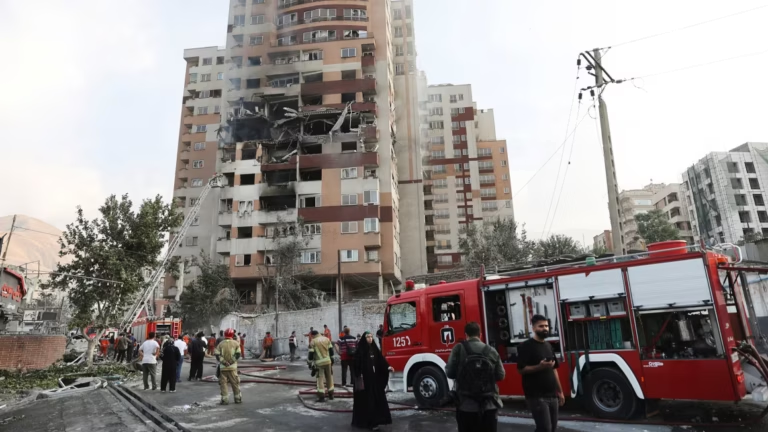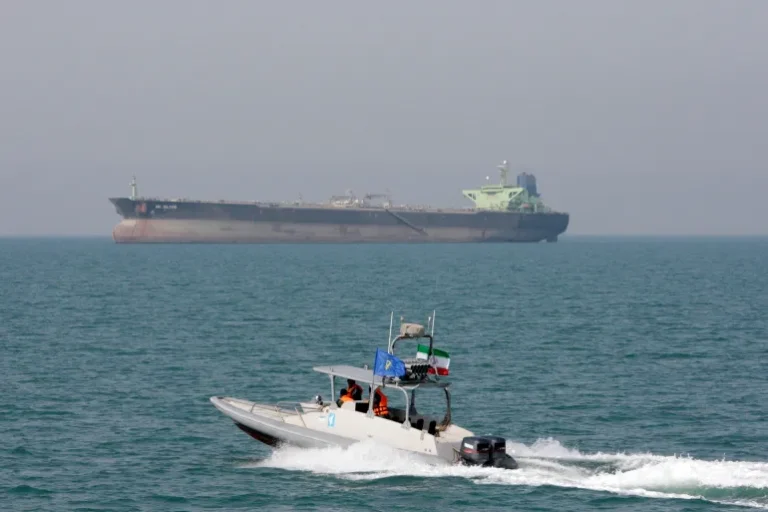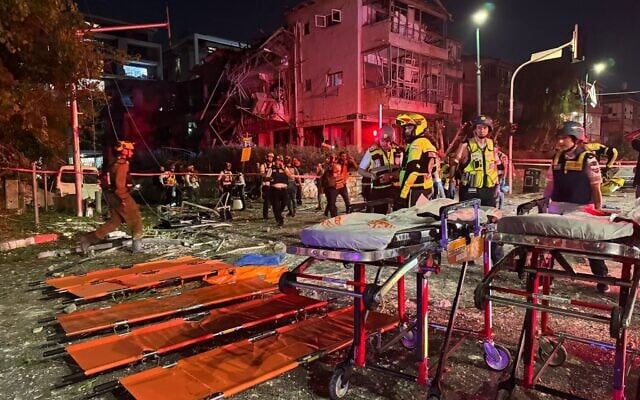
Middle East Tensions Escalate as Iran Launches Massive Missile Strike on Israel – Global Reactions from USA, India, Pakistan, and Dubai
Dubai, June 13, 2025 – A dramatic escalation unfolded in the Middle East on Friday evening as Iran launched a massive retaliatory missile barrage against Israel, following Israeli airstrikes on Iranian military and nuclear sites earlier in the day. The situation has drawn intense global attention, with strategic implications for nations like the USA, India, Pakistan, and residents across the Gulf region, including Dubai.
The Israeli military issued an emergency warning stating that “all of Israel is under fire,” as Tehran confirmed the launch of hundreds of ballistic missiles in what it described as the first wave of its “crushing response.”
Iran Confirms Missile Barrage Amid Tensions with Israel
Iran’s state media outlet IRNA reported that “hundreds of ballistic missiles” were launched toward occupied territories in what Iranian authorities called a decisive response to Israel’s “savage attacks” earlier Friday. The strikes mark the latest and most intense flashpoint in an already fragile region, where fears of a wider war loom large.
This escalation is being closely monitored not just in Israel and Iran, but across global power centers like Washington, New Delhi, Islamabad, and Dubai, as diplomatic and economic fallout could ripple across the world.
Explosions Rock Tel Aviv – Israeli Cities Under Threat
In Tel Aviv, loud explosions were heard by residents and journalists, with live footage capturing scenes of rockets streaking across the sky and smoke billowing near residential and commercial towers.
The Iron Dome missile defense system was seen in action, intercepting many of the incoming missiles. According to Israeli police, at least one Iranian munition landed in a Tel Aviv district, causing property damage but no reported injuries so far.
Israeli police and bomb disposal units are currently securing affected areas.
Israel-Iran Conflict Raises Global Concerns – India, Pakistan, and UAE React
The Iranian missile attack follows a bold and controversial Israeli military operation launched Friday morning aimed at dismantling Iran’s nuclear infrastructure and toppling elements of its military leadership. Notably, the operation was carried out without coordination with the United States, a departure from previous patterns of collaboration between Tel Aviv and Washington.
The U.S. government, under the Trump administration, has emphasized that it was not involved in the operation, a statement that underscores growing strategic tensions even between close allies.
Governments in India and Pakistan have issued preliminary travel advisories for their citizens currently residing in Israel, Iran, and neighboring countries, including the United Arab Emirates (UAE), where large diaspora communities from both South Asian countries reside—particularly in Dubai, a major regional hub.
Dubai: A Watchful Eye on Regional Stability
In Dubai, where tens of thousands of Indian and Pakistani expatriates live and work, there is rising concern over the potential economic and geopolitical impact of this sudden escalation. While the UAE has maintained a balanced diplomatic stance with both Israel and Iran, any prolonged conflict could disrupt regional trade, oil markets, and air travel between South Asia and the Middle East.
Dubai residents, many of whom commute frequently between the UAE, India, and Pakistan, are keeping a close watch on travel updates, especially concerning flights to Tel Aviv, Tehran, and other regional hotspots.
Key Takeaways for Global Audiences
Israel and Iran are now actively engaged in direct military conflict, with missile exchanges escalating rapidly.
The USA, while a key ally of Israel, has distanced itself from the current operation, stating it had no prior involvement.
India and Pakistan, as significant regional players with large diasporas in the Middle East, are monitoring developments closely.
Dubai, a crucial business and transit hub, remains stable but on high alert due to its proximity to the conflict zone and its economic ties to all involved nations.
Looking Ahead: What This Means for the Region and the World
As this situation develops, analysts warn that a wider regional war could emerge if diplomatic intervention does not occur quickly. The conflict’s implications could extend far beyond the Middle East, affecting global oil prices, international travel, and South Asian economies that rely on Gulf remittances and trade routes through Dubai.
Whether you’re a business leader in the USA, a policy analyst in India or Pakistan, or an expatriate living in Dubai, this unfolding crisis is one to watch closely.
Stay tuned for real-time updates and expert insights as more details emerge.




